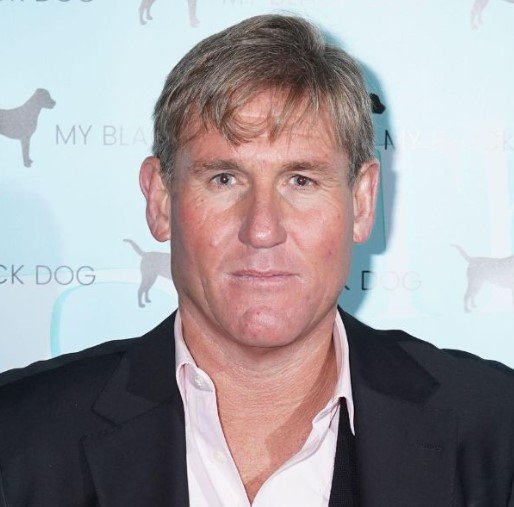Newcastle United’s fight to stay in the Premier League’s elite tier is hitting a financial wall. And broadcaster Simon Jordan isn’t holding back, calling out what he sees as an unfair system that favors legacy giants while stifling challengers.
The former Crystal Palace chairman turned talkSPORT pundit has taken fresh aim at the Premier League’s Profit and Sustainability Rules (PSR), accusing them of “killing the competitiveness” of English football. His fury comes as Newcastle — backed by one of the wealthiest ownership groups in sport — struggle to spend, shackled by rules that didn’t exist when the likes of Chelsea and Manchester City were building their empires.
Money Talks, But Not For Everyone Anymore
Newcastle’s ownership structure, fronted by Saudi Arabia’s Public Investment Fund, was once tipped to turn the club into a European heavyweight. Two top-four finishes in three seasons added fuel to that dream.
But in 2025, things look different.
Despite the ambition and backing, Newcastle have hit a glass ceiling. A massive revenue gap between the Magpies and the ‘Big Six’ — particularly Manchester United, City, Liverpool, Arsenal, Chelsea and Tottenham — makes it tough to invest without breaching PSR thresholds.
Jordan, never one to mince his words, says it outright: “They’ve got every right to do what City and Chelsea did. But the rules now? They lock the door behind them. That’s a cartel.”

The ‘Cartel’ Allegation That Won’t Go Away
Jordan’s “cartel” argument isn’t new, but it’s striking a louder chord in 2025. He argues the original rules — introduced in 2013 — were crafted only after the traditional elite had already secured their place at the top.
“They changed the rules after they got there,” he ranted on air. “Then they said, ‘Right, now that we’ve loaded up, no one else is allowed to spend big.’ Where’s the fairness in that?”
And he’s not alone. Plenty of fans and even some club executives quietly agree: PSR, while intended to protect clubs from financial ruin, now feels like a straitjacket.
Here’s how it works in a nutshell:
-
Clubs are allowed to lose a maximum of £105 million over a rolling three-year period.
-
Any further losses must be covered by increased revenues or player sales.
-
Sanctions for breaches range from fines to points deductions, as seen with Everton and Nottingham Forest.
Which means clubs like Newcastle, who want to break into the top four, can’t simply spend — they must sell first.
The Numbers Game: Who’s Really Got Room To Spend?
Let’s put the financial gap into perspective with a comparison of estimated revenues (2024-25 figures):
| Club | Estimated Revenue (£m) | Champions League Income? |
|---|---|---|
| Manchester City | 775 | Yes |
| Liverpool | 650 | Yes |
| Manchester United | 635 | No |
| Arsenal | 605 | Yes |
| Chelsea | 520 | No |
| Tottenham Hotspur | 475 | Yes |
| Newcastle Utd | 290 | No |
Even after recent Champions League income, Newcastle’s earnings trail behind the big hitters. And with a smaller stadium capacity and more limited commercial deals, they’re forced to play a cautious game just to avoid breaching PSR limits.
One club executive from another Premier League side described it as “trying to sprint in a straightjacket.”
Transfer Headaches and Fan Frustration
The result? Newcastle are being forced to sell before they can buy. The club offloaded Yankuba Minteh to Brighton for around £30m and are expected to listen to offers for key names like Callum Wilson or Miguel Almirón.
Fans aren’t thrilled.
On Tyneside, the mood is shifting from excitement to frustration. How can a club with billions in theoretical backing be outspent by clubs like Aston Villa or even Bournemouth?
It’s not about being reckless. Newcastle haven’t gone on wild spending sprees. But they’ve still hit a ceiling because their revenue base hasn’t caught up to their ambitions — and PSR doesn’t care who your owner is.
Jordan’s Fix? Rethink the Rulebook Before It’s Too Late
Jordan is clear on what he thinks needs to happen.
“These rules were put in place with good intentions, but the implementation is flawed,” he said. “You can’t let clubs like City and Chelsea build dynasties through unchecked spending, then slam the brakes on anyone else trying to do the same. Either the door stays open for everyone — or we admit this league’s already rigged.”
He’s calling for a PSR overhaul. Not to open the floodgates for reckless spending, but to introduce more flexibility — particularly for clubs with high investment potential that are responsibly managed.
Some of his suggestions include:
-
Exemptions or softer limits for infrastructure spending
-
More generous allowances for club-owned academies
-
Graduated caps based on stadium size or geographic market
Others have floated performance-based exceptions — such as easing restrictions if a club qualifies for Europe or hits a certain youth-development quota.
What Now for Newcastle?
Eddie Howe has played it cool in public, insisting the club remains committed to “building the right way.” Behind the scenes, though, sources suggest tensions are rising.
In a summer when Newcastle wanted to push forward, they’re instead treading water.
And Jordan’s blunt assessment has stirred up wider conversations about whether the Premier League — once the most open footballing ecosystem in the world — is quietly becoming one of the most closed.
Some say PSR is the right medicine. Others say it’s poison disguised as fairness.
But one thing’s for sure — for Newcastle United, it’s feeling like a race where everyone else already had a head start.
